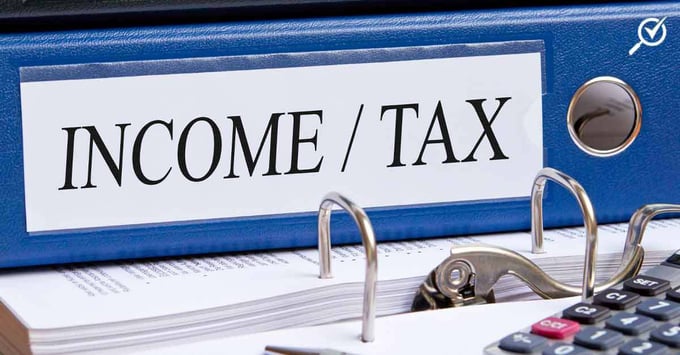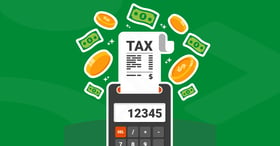The first thing that should be noted is that in Malaysia and most other countries there are different ways that expats are classified based on the time they worked in the country.
Non-resident working in Malaysia
You are considered as a non-resident under the Malaysian tax law if you stay less than 182 days within Malaysia within a calendar year, regardless of your citizenship or nationality. So, for those that fall under the non-resident tax rate here we have overview of all the tax rates.
| Types Of Income | Rate (%) |
| Business, trade or profession Employment Dividends Rents |
28 (With Effect from Year Assessment 2016) |
| Public Entertainer Interest |
15 |
| Royalty | 10 |
| Payments for services in connection with the use of property or installation, operation of any plant or machinery purchased from a non-resident | |
| Payments for technical advice, assistance or services rendered in connection with technical management or administration of any scientific, industrial or commercial undertaking, venture, project or scheme | |
| Rent or other payments for the use of any movable property |
You will not be taxable if
- Employed in Malaysia for less than 60 days
- Employed on board a Malaysian ship
- Age 55 years old and receiving pension from Malaysian employment
- Receiving interest from banks
- Receiving tax exempt dividends
If taxable, you are required to fill in M Form.
Foreigners with a non-resident status are subjected to a flat taxation rate of 28%, this means that the tax percentage will remain the same no matter the amount of income. As a non-resident you’re are also not eligible for any tax deductions.
Residents
If you are a foreigner that has stayed and worked in Malaysia for more than 182 days during the calendar year, you have a resident status and you will fall under the normal Malaysian tax laws that are also applicable to the native population, check out all information on this taxing system in this article.
While profits sourced elsewhere are not subject to Malaysia personal income tax there are three main exceptions.
- Malaysia has signed numerous Double Taxation Avoidance agreements. When addressing instances of double taxation, this wide bilateral tax treaties network can be an exception to the territoriality taxation principle, as it sometimes allocates the right to other countries to tax domestically earned income of Malaysian tax residents. In such instances, tax residents will be exempted from paying personal income tax in Malaysia.
- Expatriates may benefit from a special tax regime exemption on their income, if the following two conditions are verified:
- First, not being defined as a fiscal resident;
- Second, if the period of employment in Malaysia does not exceed 60 days per calendar year.
- Finally, for income derived from specific industries – including air transport and banking – Malaysia doesn’t apply the territorial basis, but instead employs a worldwide basis for taxation.
Expatriates that have been working in Malaysia for longer than 182 days in a year are considered ‘tax resident’. Expatriates that are seen as ‘residents’ for tax purposes will pay the progressive tax rates and are also eligible for the tax deductions.
Under Part II, Section 7 of the Income Tax Act, 1967, the Malaysian government considers any individual – regardless of their nationality – a tax resident if the individual fulfils any of the underlying conditions.
- The individual has been resident in Malaysia for 182 days of the tax year;
- The individual has been resident in Malaysia for less than 182 days of the tax year, but was resident in the country for a total of 182 consecutive days linked to days from the year immediately preceding or following that tax year;
- The individual has been resident in Malaysia for at least 90 days of the current tax year and was resident in Malaysia for at least 90 days in three of the four preceding years or;
- The individual will be resident in Malaysia in the year following and has been resident in Malaysia in the three years preceding the one being taxed.
To file your income tax, the expatriate will need to obtain a tax number from the Inland Revenue Board of Malaysia (IRB). Normally, companies will obtain the income tax numbers for their foreign workers. However, if the company has failed to obtain one, the worker can register for an income tax number at the nearest IRB office.
If you make an incorrect tax return as an expatriate either by omitting or understating your income, the IRB is fully in their right to fine 100% of the undercharged tax. If the income tax submission is filed late, it may result in a disciplinary fee up to 10% of the tax payable.
What if you Have to Travel OUT of Malaysia within the 182-day period?
If you have to leave Malaysia, it has to be for one of the following reasons;
- To attend any meetings, seminars, conferences or exhibitions that are related to your job.
- To receive medical treatment related to your health or any of your immediate family members.
- Social visits, but no longer than 14 days.
Certificate of Residence (COR)
The Certificate of Residence is issued by the LHDN to confirm your residence status for Malaysian tax purposes. With the COR, you can start claiming tax benefits and avoid being taxed twice on the same income due to the Double Taxation Agreement that Malaysia has with multiple countries.
1. How do you apply for COR?
You can apply manually by going to any of the LHDN branches. There are some documents you will need to bring;
2. Original or copy of your passport
A list showing your movements in/out of Malaysia for the year of assessment.
3. How long will it take to issue COR?
If all documents and information are complete and in order, it should be ready within three working days. If this is not the case please contact the LHDN branch.
4. How much does it cost?
Both application and Issuance of the COR are FREE










